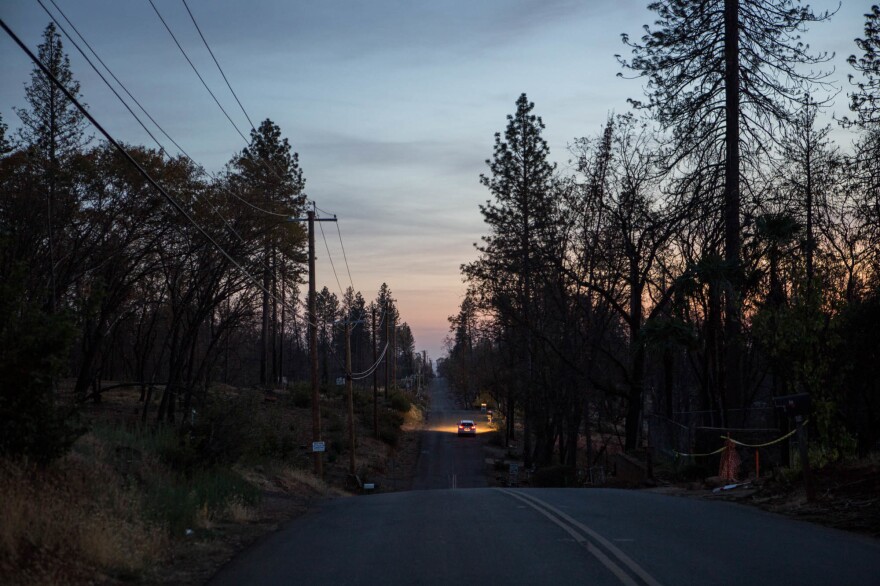When Linda and Bob Oslin lost their home last year to California's most destructive wildfire, they began searching their burned property expecting to salvage at least some sentimental items.
But, she says, "everything was gone." Or so she thought.
The walls of their home had caved in. Even determining where the rooms had been was difficult. But, as Linda sifted through the debris in the footprint of the burned lot in Paradise, she began stumbling upon pieces of their life together: a pile of fused ceramic dishes; the charred head and shoulders of a fancy doll that Linda, who is 74, had treasured as a child. Also, to her surprise, there was the untouched newspaper that had been delivered that morning.
Linda salvaged these random pieces — some that had sentimental value before the fire and others that gained new meaning amid the devastation of the blaze.
Months later, she displayed what was left of the doll in their new home in Oroville, Calif., and hung up the melted pile of dishes.
"It was therapy," she says.
Loading...
Seeing the fragments of what had survived was a way for Linda to process the fire that had burned through her home. What was left became a reminder that this new life was "simply the way things are."
Stacey Menzel Baker, a professor who studies object attachment at Creighton University in Omaha, Neb., says we all have relationships with things — objects — much as we have relationships with people or places.
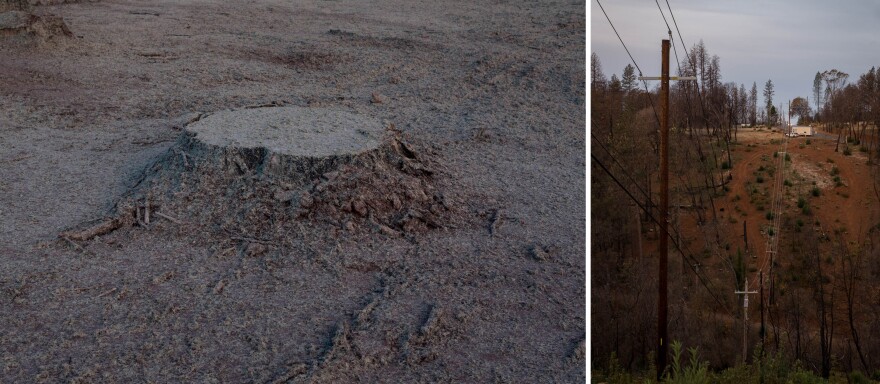
"They help us process and make sense of our lives," Menzel Baker says. "It's not necessarily important what the object is."
That we have a connection to our possessions is, perhaps, not surprising, but certain objects claim a special meaning in the narrative of our lives. Sentimental items can connect us with important memories or bolster a sense of identity.
"They're mechanisms for security," Menzel Baker explains.
Loading...
A classic example is the child who feels braver when holding a blanket given him by his parents because it connects him to a relationship that strengthens him.
Objects also have the power to transport us to another place or time. A souvenir from a vacation, for instance, can act as a repository of memories from the trip. Or an artist may repurpose a salvaged piece of metal from a fire as a way to "transport them forward, or to transcend" a catastrophic event.
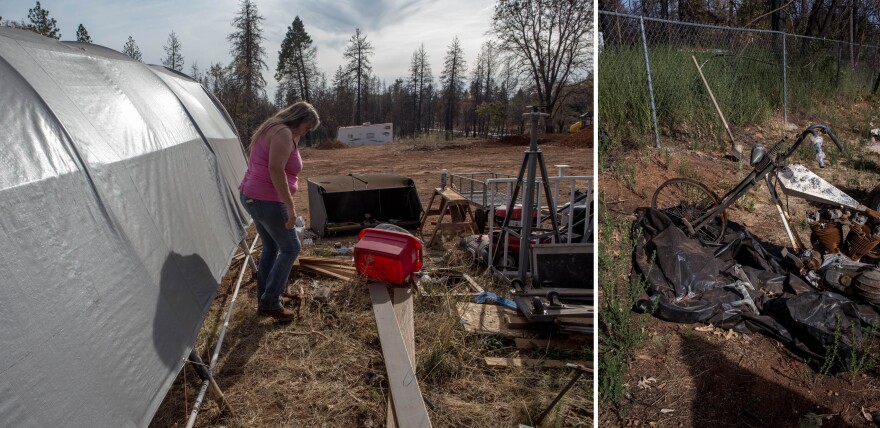
Loading...
And while not everyone experiences the same need to hold on to artifacts, Menzel Baker says, we may be more prone to do so if our environment has been disrupted and we feel disconnected.
Following the one-year anniversary of California's Camp Fire last month, Bonnie Bailey, revisited the site of the house that she and her husband and son had been living in Magalia, a Butte County community that neighbors Paradise.
"We lost everything that hinged us to our past," 46-year-old Bailey says, recalling old family photos and sentimental family heirlooms that were lost.
Walking through the property a year later, she spotted a quarter-sized ceramic chip from a mug once owned by her grandmother. The piece of pottery had a butterfly print — once orange but now a greenish-brown.
Loading...
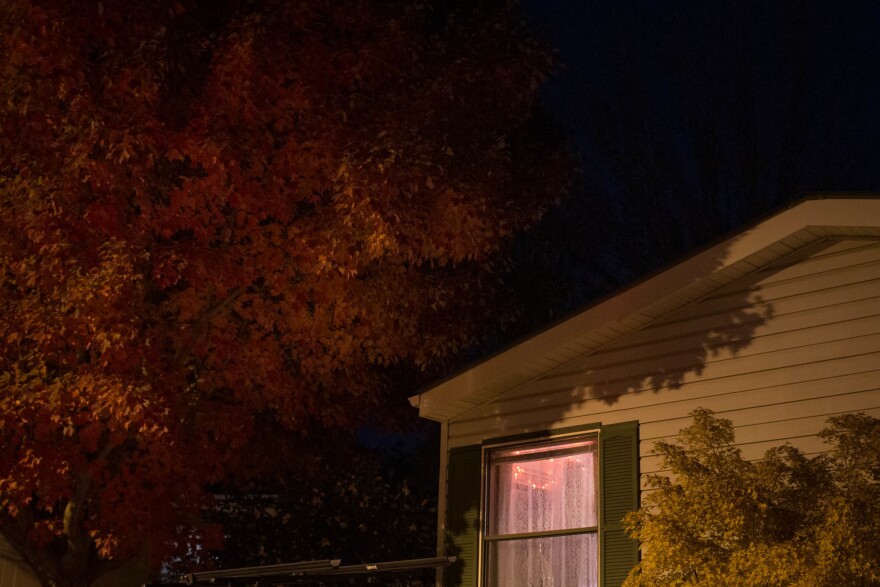
Even though she wasn't particularly close to her grandmother, finding the small fragment made her feel "connected to something."
"We have each other. We have our animals. It's just things," she says. "But somehow, there's just this feeling — we feel, just, so unhinged, like we don't know where we belong."
Bailey keeps the mug fragment on the dashboard in her car. Even though she and her husband are building a new life a couple hours north, in Dunsmuir, Calif., it has been difficult for her to want to rebuild or replace the possessions she lost.
"It's like falling in love. You're kind of scared to do it again," Bailey says. "Do we really want to build a home again? Do we really want to have things we care about? Do we really want to have special Christmas ornaments?"
Over time, as new experiences and memories replace old ones, physical objects can lose importance as conduits of emotion and personal history. However, Menzel Baker says, that's different for everyone.
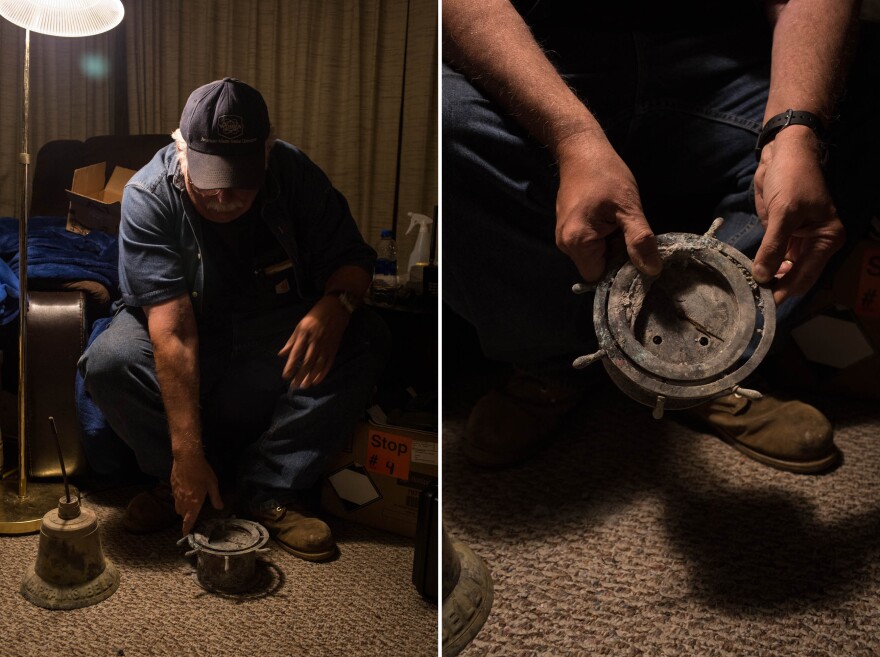
Loading...
"We use objects to tell our life stories — about how 'I went through this really hard thing, and I'm still here to tell about it,' " Menzel Baker explains.
"Some people may decide, 'That's the really important part of my story. And it's always going to be part of my story. I want it to be passed on to my kids and my grandkids.' "
Copyright 2023 NPR. To see more, visit https://www.npr.org.
